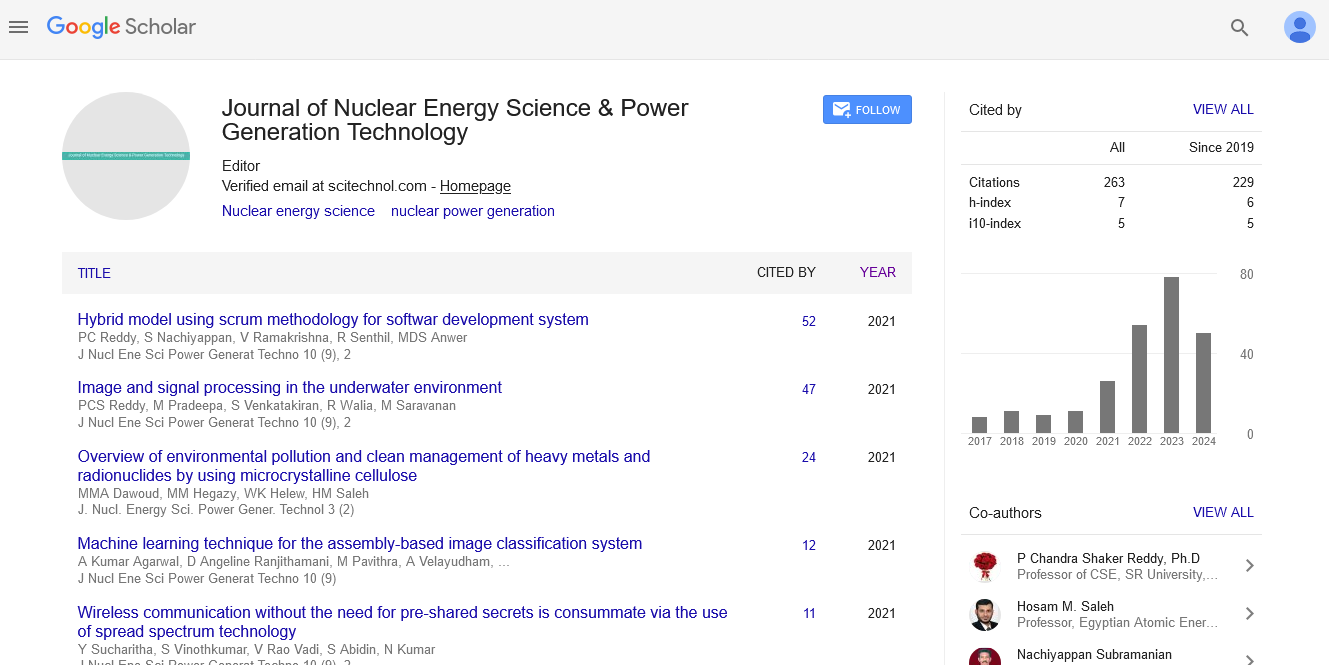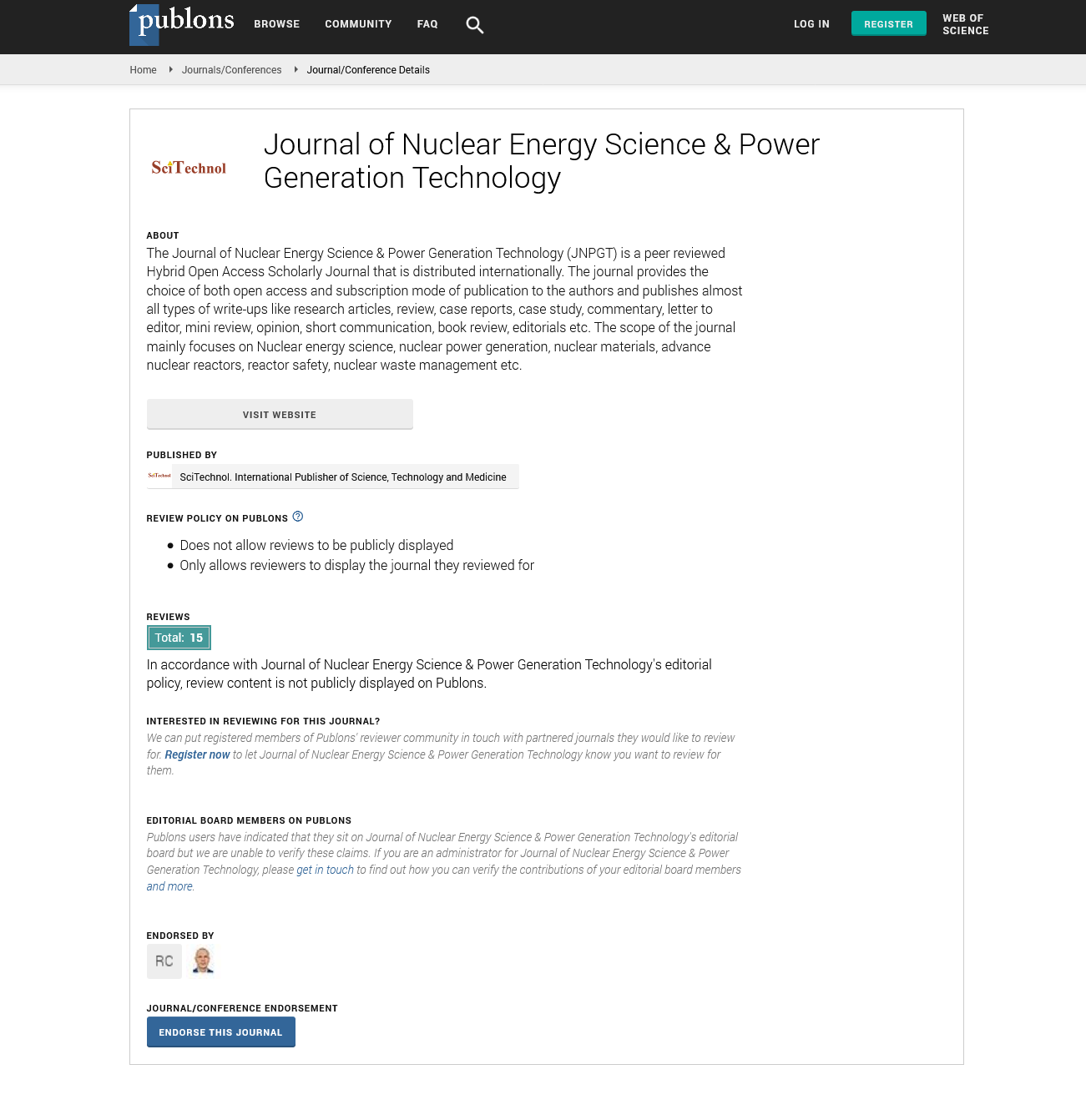Are renewable energy technologies really sustainable: Is less bad good enough?
Berrin Kursun
Marmara University, Turkey
: J Nucl Ene Sci Power Generat Technol
Abstract
Sustainability is a hot topic in the face of the environmental problems we expose today. And, renewable energy is proposed to be the cure to energy related environmental and sustainability focused problems such as the energy poverty in rural areas. However, multi-dimensional analysis of emerging renewable energy technologies and calculation of their real cost to the nature is crucial. In design of a truly sustainable energy system, but not a version with reduced impacts, being the resource renewable only may not be enough. Complementary analyses (such as joint use of emergy analysis and life cycle assessment) which take into account the knowledge of local people and local carrying capacity of the region where the energy system is to be implemented will not shift the problems outside the inappropriate analysis boundary. One other aspect to consider is the size of the renewable energy technology. An oversize hydroelectric power plant can damage the river and surrounding ecosystem severely. Or, conventional solar PVs which are anticipated as 100% renewable have renewability of around 2% because of the f non-renewable resources utilized in production and mounting of solar panels. Hence, renewable energy technologies perceived as sustainable options in meeting energy needs may not be sustainable as expected and they should be analysed holistically with systems thinking prior to mass adoption. Based on its importance, this talk attempts to discuss sustainable energy systems design based on renewable energy sources from multiple perspectives.
Biography
Berrin Kursun had her PhD at The Ohio State University in 2013. Her PhD studies focused on sustainable energy systems design composed of localized and centralized technology options. For that, she worked in collaboration with a local NGO (Development Alternatives) and, the team performed the multi-dimensional analysis of different energy technologies to meet the energy demand of Rampura Village in Uttar Pradesh state of India sustainably. She works at Marmara University, Chemical Engineering department since 2014 and at Marmara University International Sustainability Center since 2015. She continues her studies in the areas of sustainable energy systems design, techno-ecological synergy, holistic management with a Turkish NGO and sustainability on campus.
Email: berrin.kursun@marmara.edu.tr
 Spanish
Spanish  Chinese
Chinese  Russian
Russian  German
German  French
French  Japanese
Japanese  Portuguese
Portuguese  Hindi
Hindi 

